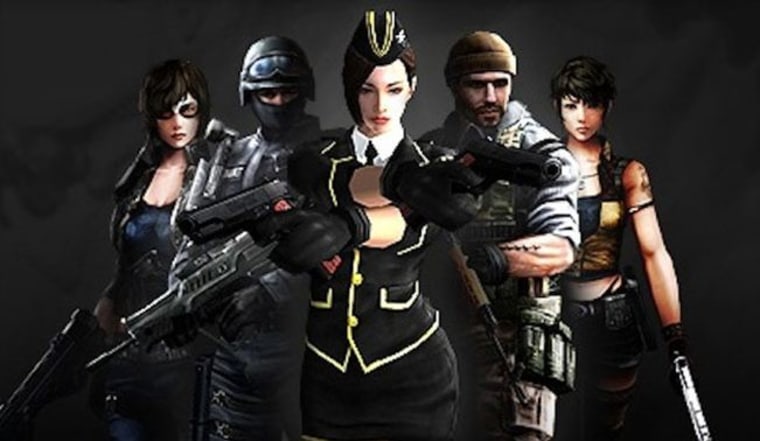This week, exceedingly popular computer game "World of Warcraft undergoes" a cataclysm, reshaping not just the game's landscape but how you play in the game.
But "World of Warcraft's" reboot is nothing compared to the turmoil the entire genre is undergoing.
Massively multiplayer online role-playing games, once the home of fantasy, magic and swordplay, are increasingly diversifying to include not only new themes and settings to explore, but also new takes on what it means to role-play and how players interact.
"I think something very big is happening in online play in general," said John Smedley, president of Sony Online Entertainment, the company behind DC Universe Online, Free Realms and EverQuest.
The year kicked off with the launch of "MAG" on the Playstation 3. The first-person shooter created by the folks behind popular shooter series SOCOM supports rolling battles of up to 256 players at a time. And there is no way to play the game offline.
At first blush "MAG" may seem like a standard military shooter, but the game shares a lot of elements with traditional MMOs, it has gamers choose from one of three factions to play in and then tracks each player's progress, allowing them to level up their character and unlock talents.
"It's about getting a large number of people to play" Smedley said. "It's a huge notch above current-generation shooters."
And MAG isn't the only game to combine the popularity of first-person shooters with the addictive nature of online role-playing.
The largest MMO shooter in the world was created in China. "Crossfire" hit the United States last year and makes all of its money by charging players for premium weapons.
Smedley added that he wouldn't be surprised if the maker of the game he currently plays most right now, "Activision's Call of Duty: Black Ops," didn't create an MMO of its own soon.
"I think the lines for what you call a massively multiplayer online game are being blurred," he said. "Now an MMO just needs to be a game where a large number of people can interact. It doesn't mean it needs a subscription or to have micro transactions."
Smedley says that Sony Online Entertainment is starting to invest more heavily in the free-to-play model. Kid-friendly "Free Realms" and "Clone Wars Adventures" are both doing well and SOE just launched a new Facebook game called "Wild Life Refuge." The publisher is also gearing up to launch a new Facebook game based on James Patterson's books that will have players hunting down a killer.
And Sony Online Entertainment is also keeping a foot planted in the realm of big budget games. "DC Universe Online" is currently in beta, preparing to go live soon. And spy versus spy MMO "The Agency" is still in the works despite significant delays.
Smedley says "The Agency," which is now due out in the second half of next year, needed a lot of work, so it was delayed.
"There was a moment in time in our company where we looked at our own stuff with a clear eye and saw we have to do better," he said of the delay. "'DC Universe' was held for a year-and-a-half from when we wanted to launch it and now I'm very happy with it."
While Sony Online Entertainment works to develop both pay to play and free to play massively online games, they also keep an eye out on the less traditional forms of massive online games, especially those made by smaller, indie developers.
"League of Legends," which has players controlling heroes as they try to take down an enemy's fortress, isn't really massive. Less than a dozen gamers can play in a single match at a time. But Smedley says that the number of people playing matches at any given time is staggering, something that reminds him that the massive in massively multiplayer doesn't necessarily have to be in a single game. It can instead by a mammoth community built around a single game.
"These guys are doing amazing numbers," he said. "Is it an MMO? It's definitely not an MMO but they are rivaling MMO concurrency numbers."
Smedley points to "Minecraft" as another surprising success of a game that bridges the gap between traditional MMO and traditional single-player titles. "Minecraft," which was launched after a week of development by one person and has since been downloaded hundreds of thousands of times, remains in a constant state of upgrading and beta testing.
"Great games," Smedley said, "attract a lot of people."
The diversity and complexity of this the ever-evolving massively multiplayer genre means that the PC, despite the decades of naysayers, remains a powerful and robust gaming platform. It's just having successes that aren't as easy to track as are the sales of boxed games in a retail store.
"People say that a lot of the PC industry has declining sales," he said. "But really it is the things we are measuring that are declining. The tools aren't there to measure the games we play."
Send an email to the author of this post at editor@kotaku.com.
For more stories from Kotaku.com see:
The Greatest World Of Warcraft Music Video Ever Made
And Then I Punched Deathwing Right In The Face
Which Worgen And Goblin Character Classes Should I Play?
